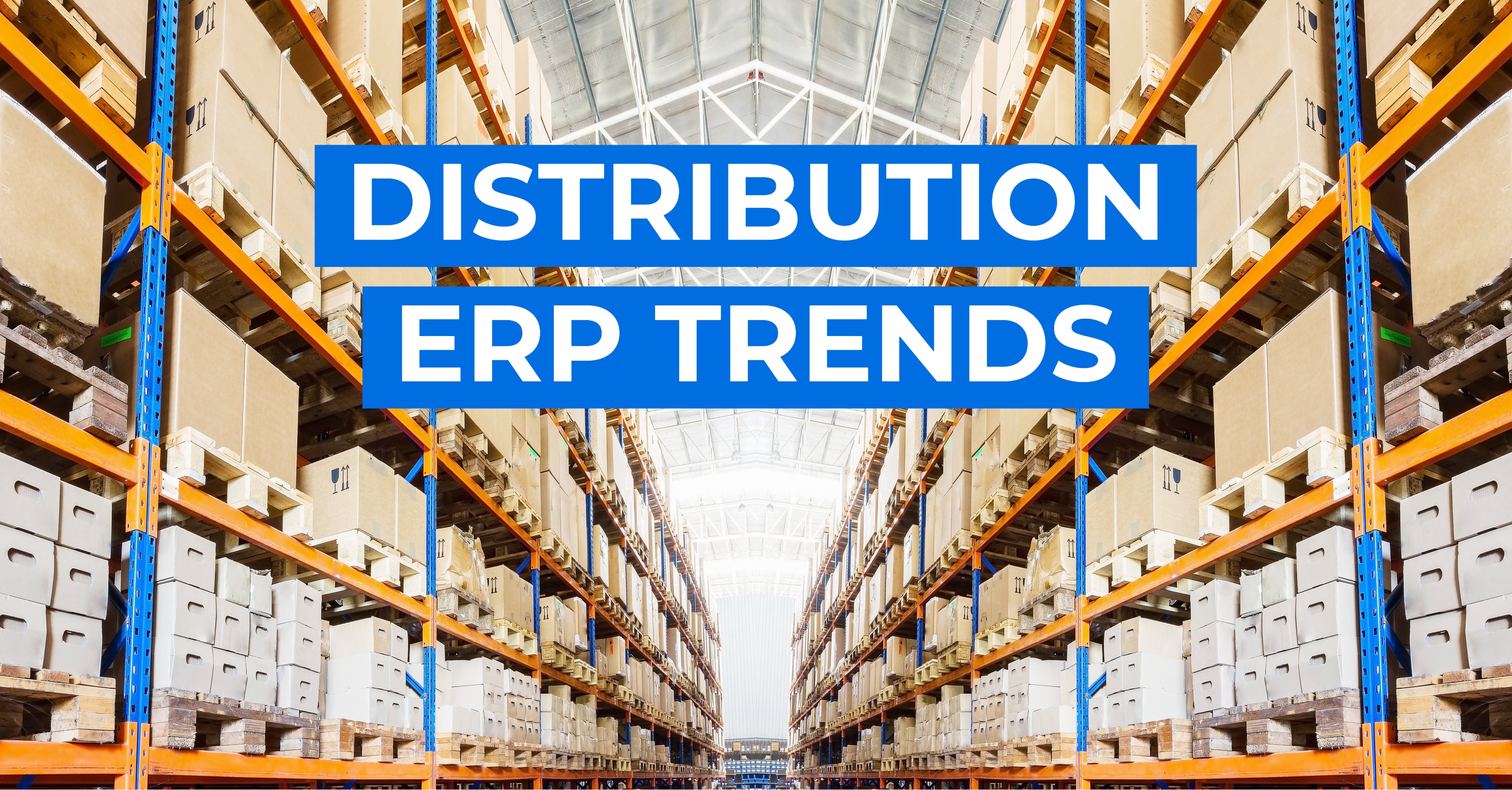How is ERP Transforming Distribution?
Enterprise resource planning (ERP) software has long served as a foundation for wholesale distribution. ERP gives businesses control over multiple operations, from the top floor to the shop floor. But not just any old ERP system has what it takes to optimize your distribution performance. Distributors today have a lot on their plates. Stringent regulations, complex supply chains, sky-high customer expectations—managing all this takes more than traditional ERP functionality.
That’s why you should keep an eye out for the latest trends in ERP technology. Leading vendors such as Epicor are incorporating cutting-edge features into their solutions to simplify distribution processes and give businesses the tools to beat out their competition. We’re going over three of the biggest trends in distribution ERP.
Download the free Prophet 21 overview to learn about Epicor’s premier distribution software!
1. eCommerce
For many distributors, launching an eCommerce site is at the top of their technology to-do list. Both B2B and B2C customers chunk catalogs in the trash and get on their laptops and mobile devices to order products. Without an online store, you’re losing out on a huge revenue channel. But what does eCommerce have to do with ERP software?
Distributors shouldn’t be running their eCommerce and ERP solutions separately. Otherwise, they’ll be forced to manually enter data into both systems and navigate back and forth between the platforms to access information or execute simple tasks. When ERP and eCommerce are merged into a single solution, you enjoy a central data hub. Online orders sync directly into back-office accounts, and inventory and pricing information is updated on your eCommerce platform.
Epicor Commerce Connect (ECC) is an eCommerce system tightly integrated with Prophet 21 or Epicor ERP to automate processes, so you can quickly meet the needs of your customers. ECC makes it easy to deliver modern, streamlined customer experiences.
2. IoT and RFID Tags
The Internet of Things (IoT) is empowering distributors to develop deeper connectivity. Sensors equipped in machines and products generate data that can be synced into ERP software to provide real-time insights. Radio-frequency identification (RFID) tags serve as a core component of the IoT. These tags store information to help you measure the performance of processes, products and equipment. Unlike barcodes, RFID can scan hundreds of items per second from 50 feet away, giving you full visibility without hassle.
There’s no limit to what your company can achieve when you utilize RFID and IoT technology. Here are just some of the ways that connected devices can optimize your distribution practices:
- RFID tags can monitor equipment performance, vehicles and warehouse conditions to alert you of issues before they severely impact your products and operations.
- Instead of counting inventory by hand, RFID can generate real-time data on inventory. This insight makes it easy to locate inventory, access stock levels and manage picking and put-away processes.
- RFID helps you keep track of shipments. It can capture items as they are staged at shipping docks or loaded on trucks. It can also verify a shipment as complete against a bill of lading.
- Distributors can leverage this enhanced visibility to provide better customer experiences. You can keep customers informed about the status of their inventory or orders and create more accurate demand forecasts.
With this wealth of information synced into your ERP solution, you can leverage real-time insights to become a more responsive and connected enterprise. Epicor offers tools to automate the printing and control of RFID tags, allowing you to capitalize on IoT technology for unprecedented visibility.
3. AI Technology
Artificial intelligence (AI) maximizes the value of your distribution data. By analyzing data, AI identifies trends and makes accurate predictions to improve decision making. For example, AI uses algorithms to forecast customer demand and calculate the fastest delivery routes, helping you rapidly satisfy customers. It can also locate shortcomings in your supply chain, detecting stocking errors, measuring supplier performance and identifying quality issues.
Additionally, AI allows users to instantly access data and perform tasks. The Epicor Virtual Agent (EVA) is an AI-powered virtual assistant that users can engage with via text or voice to get answers to their questions fast. EVA alerts distributors of issues and lets them fix them at a moment’s notice to increase efficiency. With AI tools inside your ERP, you can take advantage of deeper insights to streamline operations.
Wrap Up
ERP technology is transforming, and in turn, these new advancements are transforming distribution. Prophet 21, Epicor’s premier distribution software, includes powerful capabilities designed to boost your business performance. Use Prophet 21’s innovative features to drive future enterprise success.
At Datix, our certified consultants have been helping manufacturers and distributors transform their businesses through software for over 20 years. An Epicor Gold Partner, we’ll make sure you’re leveraging the right ERP tools to optimize your processes. Leverage our full range of Prophet 21 and Epicor ERP services and solutions to take your enterprise to the next level.
From start to finish, Datix is there to enhance your distribution operations. Get in touch with one of our ERP experts today!
{{cta(‘770c1544-d87d-4acb-9fc4-7a25e1385094′,’justifycenter’)}}


